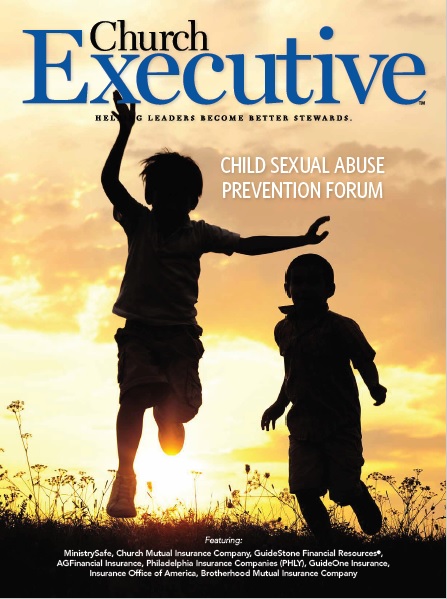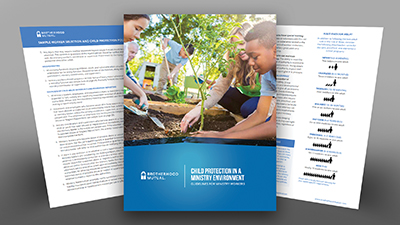
This year has been a season of disruption.
And in a time of disruption, it’s more important than ever to ensure your ministry is following its policies and procedures — especially when it comes to staff who work with children.

Assistant Vice President, Senior Corporate Counsel
Brotherhood Mutual Insurance Company
A key aspect of risk management is safeguarding the physical and spiritual wellbeing of the children, youth and vulnerable adults in your ministry. There’s a heightened legal duty when you’re ministering to children. You have a duty to protect and keep them from harm. This duty exists regardless of where children’s ministry takes place — whether it’s in-person at church, off campus, or via online or web platforms.
As you focus on staying connected with your people, you must also remember to protect them. At times like this, a predator can take advantage of the turnover happening in your staffing because of lax screening measures, delayed child abuse prevention training, a loss of supervisory staff, or relaxed digital communication procedures. Don’t let this time of disruption be a sexual predator’s point of entry into your children’s and youth ministry.
What’s the plan?
Ministries tend to do a good job in understanding basic procedures to screen out predators. But screening alone isn’t enough. A formal abuse prevention document establishes a culture of safety and accountability with a written record of policies, practices, guidelines and procedures designed to protect the vulnerable. The following are just a few key areas to consider including in your child abuse prevention plan:
Six-month rule — Consider a requirement that individuals interested in volunteering with children attend your church for at least six months. Sexual predators seek easy access to children and typically won’t wait a long period of time to gain contact.
Strengthen screening processes — Unless a sexual predator has been previously convicted, the individual most likely won’t show

up on a criminal background check. That’s why you need a multilayered screening process that includes a written application, a reference check and interview, a background check, and a personal interview. Everyone working with the vulnerable — both paid and volunteer — should be screened, even if you know them well.
When doing a background check, you’ll want to work with a reputable provider to do a national criminal record check and a local background check. A local background check will often cover a five-year period, looking at the county and city in which the applicant lives. Not all local jurisdictions report to the national database — so, a local check is important.
 Training and education — Educate anyone who will be working with children 18 years and younger in your ministry. Have training in place that empowers your volunteers and employees to recognize the signs of predatory and grooming behaviors.
Training and education — Educate anyone who will be working with children 18 years and younger in your ministry. Have training in place that empowers your volunteers and employees to recognize the signs of predatory and grooming behaviors.
Supervision — Good supervision helps to deter abuse. The goal is to prevent situations that leave one employee or volunteer alone with minors in rooms, vehicles, restrooms or via technology.
Guidelines for ministry workers
To help churches create a safe ministry environment, Brotherhood Mutual® has developed a digital booklet that goes into greater detail about the points above and more. Child Protection in a Ministry Environment — Guidelines for Ministry Workers lays the groundwork for developing and enhancing your child protection and screening program. (It’s available at brotherhoodmutual.com/guidelines.)
The booklet covers awareness and the importance of training and offers instructions for developing a screening and supervision program within your ministry. It also includes a sample policy manual with 16 forms and checklists.
Contact Legal Assist*
As your ministry works on implementing or updating your child abuse prevention plan, feel free to reach out to our Legal Assist team. We can review your plan and provide risk management guidance on this topic. This free service is provided by our inhouse attorneys and is available to all ministries. Visit brotherhoodmutual.com/legalassist.
*The services offered through Legal Assist are intended to provide general legal information. It does not constitute legal advice. The free service is intended to provide information that is helpful but is not a substitute for the advice of a licensed attorney in your area.


